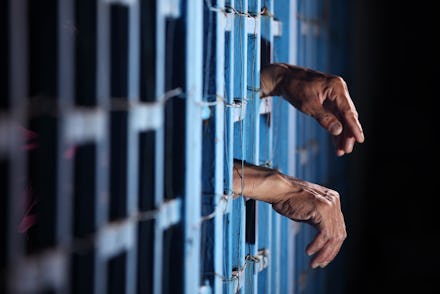Here's why the Trump administration will be good for private prisons — and bad for inmates

Life in privatized prisons can be especially inhumane: One prisoner in a private prison lost his leg and some fingers to gangrene after not being given sufficient medical care, and another lost part of his ear during a stabbing fight with a fellow inmate, according to a damning Mother Jones report in July.
The following month, President Barack Obama's administration announced it would work towards ending contracting private prisons due to their poor conditions: The drive to maximize profits has reduced the number of prison guards and provided those left with insufficient training.
After the announcement, stocks for the biggest players in the prison-industrial complex — CoreCivic Inc. and GEO Group Inc. — plummeted.
But now private prisons are on track to make a quick comeback with the election of Donald Trump. The president-elect and his administration may well bolster these companies, whose stock prices have dramatically increased since the Nov. 8 election. GEO's stock price went from $24 to $31 in less than a week after Trump's victory.
These companies, and others like them, could potentially benefit from a confluence of factors, from stricter immigration laws to lengthening sentences.
In 2015 alone, GEO made $1.84 billion in revenue. Trump's proposal of enforcing stricter laws on undocumented immigrants would cost the government anywhere from $400 to $600 billion, Bloomberg reports; private prisons would stand to earn some of that.
Trump's controversial choice of attorney general, Jefferson Sessions, is good news for the private prison industry, too.
Sessions has been a consistent and avid supporter of private prisons, inviting them into his home state of Alabama over the past few decades. This point, coupled with Sessions' plan to prosecute undocumented immigrants, is likely good news for the prison-industrial complex.
"We will prosecute those who repeatedly violate our borders," Sessions said in his opening statement to the Senate Tuesday for his confirmation hearing. "It will be my priority to confront these crises vigorously, effectively and immediately."
To top it off, Trump has echoed Sessions' approach to incarceration by explicitly saying on the campaign trail that he wants to privatize prisons.
"Our prison system is a disaster, it's complete disaster all over the country," Trump said in an MSNBC town hall in March. "By the way, with prisons I do think we can do a lot of privatizations and private prisons. It seems to work a lot better."
Perhaps unsurprisingly, the private prison industry has been accused of cozying up to Trump even before the elections.
The nonpartisan campaign finance watchdog Campaign Legal Center filed a complaint to the Federal Election Commission in November, alleging GEO broke the law by funding a Trump super PAC.
Companies that have government contracts are not actually allowed to make political contributions.
Even if there are arguably financial upsides to government contracts with private companies, the human consequences of unchecked privatization can be serious.
In general, as more public services are privatized, the quality of those services provided seems to go down. Privatized hospitals see increased mortality rates, for example, and the privatization of emergency responders has resulted in 911 waiting times so long that people have died.
And, as the Mother Jones report revealed, prisoners are not being properly cared for when companies try to cut corners and generate more savings by cutting costs by hiring fewer, less-qualified guards.
The problem has steadily been getting more attention, even seeping into popular culture: Orange is the New Black showcases how privatizing prisons can seriously reduce the quality of life for those who are incarcerated — at times making it barely tolerable.
"There's a magical thinking among business executives that something about the profit motive makes everything run better," Boston University economics professor Raymond Fisman told the New York Times. "What is government going to be like when it is run by billionaire CEOs that see the private sector as a solution to all the world's problems?"
In fact, recent Nobel prize-winning economists argue that the very nature of public-private contracts and the imperative that private businesses maximize profits can create a drag on quality and reduce worker (e.g., prison guard) training.
Sign up for The Payoff — your weekly crash course on how to live your best financial life.